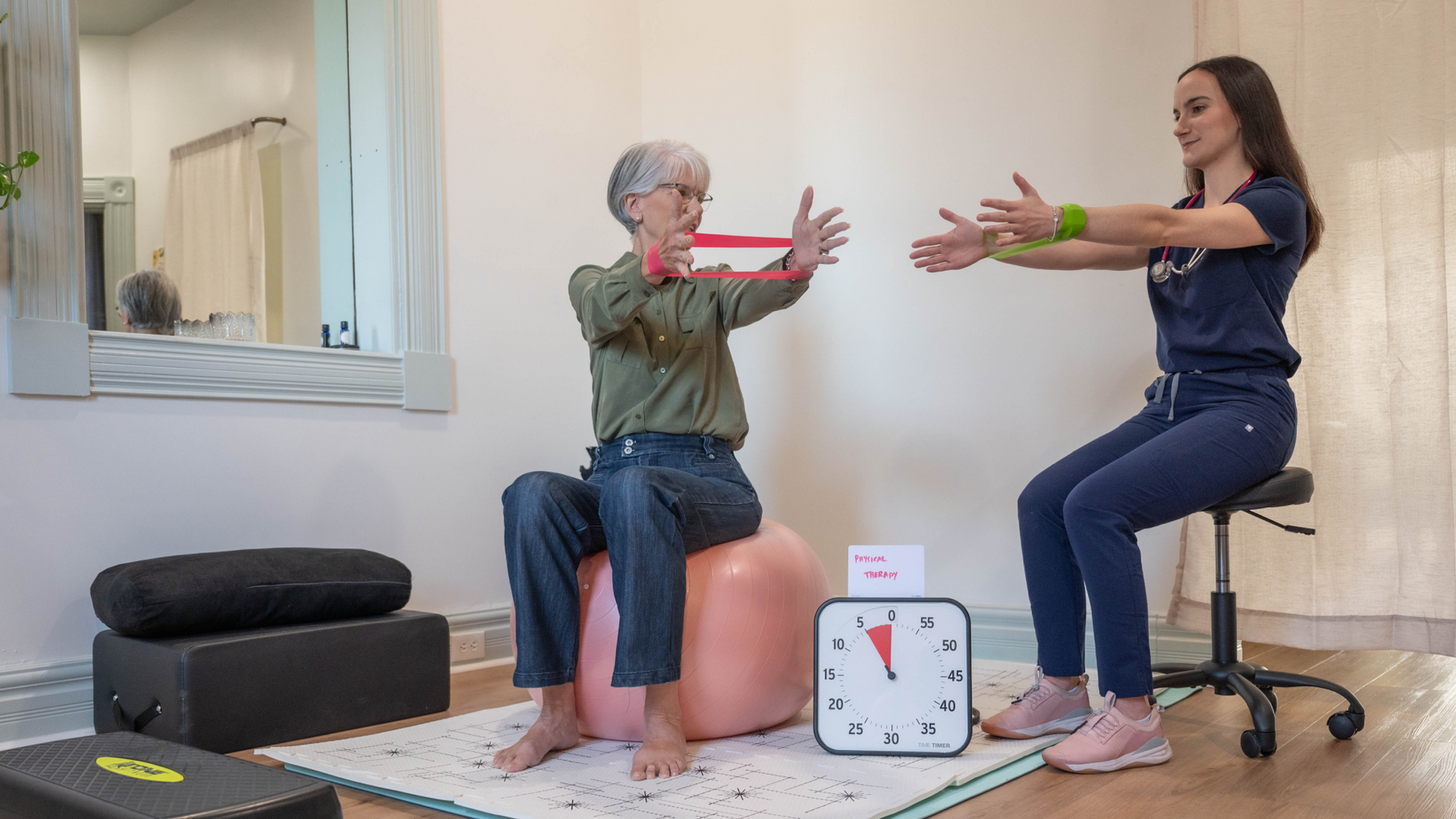
Six Ways to Enhance Quality of Life in Aged Care
Caring for an ageing loved one is a journey filled with love, patience, and, at times, heart wrenching challenges. Whether you're a devoted family member or a dedicated caregiver, your goal is the same: to provide comfort, dignity, and joy in every moment.
As aged care evolves, a new generation of smart, compassionate innovations is emerging, designed not just for older adults, but for the people who care so deeply for them.
At Assistive Teach we offer six helpful tools that are more than just technology, they’re lifelines helping to ease daily struggles, improve quality of life, enhance communication, and bring a sense of independence to those we hold dear.
Here are some of the most common challenges older adults face and the solutions that are making a meaningful difference.
Frequent Falls
Falling remains one of the leading causes of injury among older adults, often due to neurological conditions such as dementia, Parkinson’s disease, epilepsy, or balance issues. To protect those individuals, we offer a practical, yet dignified selection of protective medical helmets from Ribcap. They have impact absorbing foam in them to reduce the risk of head injury during a fall and are designed to look like stylish beanies or caps, so you can feel good wearing them.

An elderly gentleman wearing a cream colour bucket hat and a white T-Shirt. The bucket hat is actually a Ribcap Billie medical protective helmet with chin strap.
Limited Hand Mobility
To assist with arthritis and Parkinson's or post stroke conditions we offer a simple, soft silicone grip that can be attached to utensils, toothbrushes, pens, and more, helping users maintain autonomy in daily tasks. Our EazyHold grips empower seniors to stay engaged in self-care and recreational activities.
Hearing Impairment
The Audeara headphones range go beyond basic noise cancellation, they’re designed with an integrated hearing health check that personalises audio output to the user’s unique hearing profile. This makes them especially valuable for seniors with hearing impairments, allowing them to enjoy music, conversations, and media without struggling to adjust volume or clarity.

An older woman with mid length brown hair nursing a toddler in her lap. She is wearing a pair of Audeara noise cancelling headphones.
Keeping track of time
For older adults living with dementia, Alzheimer’s, or cognitive decline, the passage of time can become abstract and confusing. The New Time Timer Pro Applied addresses this with a visual countdown feature, larger numbers and a larger easy to grip set knob helping seniors better understand and manage daily routines. Whether it’s for cooking, therapy sessions, or resting, this tool provides a reassuring visual cue that reduces anxiety around time.

A person holding a white timer with teal visual indicator in two hands with a gentleman seated, reading a book in the background and a dry erase board accessory for the timer sitting on a stack of books in the background.
Drinking support
Maintaining proper hydration can be challenging for individuals with limited mobility or those who must drink while reclining. Our RikaCare NovoCup, includes a built in valve that creates a vacuum seal, allowing users to sip at their own pace without spillage or strain. It’s a thoughtful solution that combines dignity, function, and comfort.
 A clear cup with white lid that incorporates a built in drinking straw that exits the lid at an angle of 90 degrees from the cup.
A clear cup with white lid that incorporates a built in drinking straw that exits the lid at an angle of 90 degrees from the cup.
Difficulty Communicating
Communication barriers can lead to social isolation and frustration. We have a range of GoTalk Communication Devices that are easy-to-use augmentative and alternative communication (AAC) devices designed for individuals with speech difficulties. With customisable picture buttons and recorded voice outputs, these devices enable users to express needs, emotions, and preferences, strengthening their sense of agency and connection.
As we continue to enhance dignity, independence, and personalisation in aged care, embracing technology like this is essential. By staying informed and open to these solutions, caregivers and families can help create a safer, more connected, and fulfilling experience for older adults.
